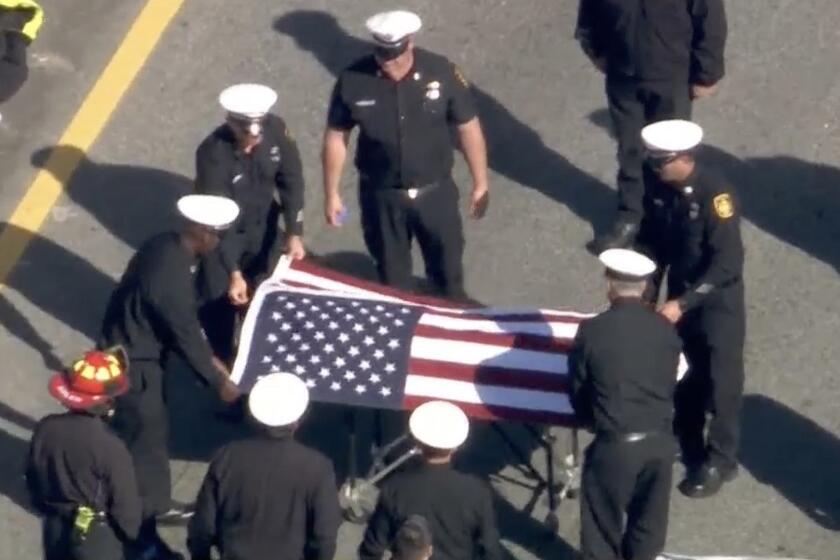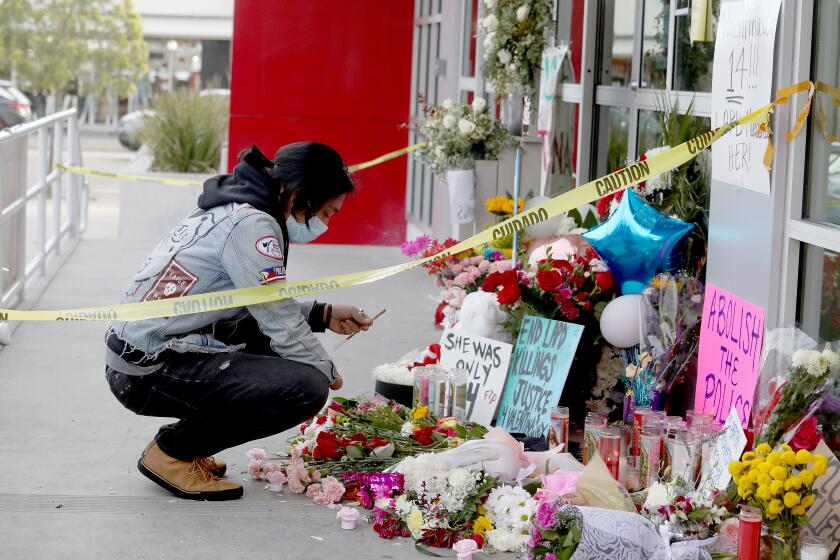When every day is one of atonement
In the fall of 2008, Jonathan Titcher was 28 years old and laying waste to his life. He was in the Men’s Central Jail in downtown Los Angeles on a probation violation, which had come less than a week after his release from a heroin conviction.
As he attended a jailhouse service to mark the Jewish high holy days, he could feel a change.
Rosh Hashanah and Yom Kippur, the two holidays that kick off the Jewish New Year, are solemn occasions for soul-searching and repentance. Known as the Days of Awe, and ending this year with the close of Yom Kippur at sundown Saturday, they are an opportunity for Jews to ask God to forgive their sins.
It is a plea that has special poignancy for Jews in jail or prison — “the forgotten Jews,” as Rabbi Yossi Carron calls them.
Carron is the head Jewish chaplain for the Los Angeles County Jail system and is assigned and subsidized by the Southern California Board of Rabbis. A former bandleader who became a rabbi relatively late in life, he has empathy for these Jews who have stumbled on life’s path. “My guys,” he calls them — people like Titcher, who met the rabbi through a Jewish cellmate and discovered a mentor. Over time, Carron would reintroduce him to his long-abandoned faith and help him see beyond a constricting world of drug addiction and pain.
“I was never accountable for any of the damage I did within myself and my family,” said Titcher. “And going to services and speaking to him gave me a chance to reflect that I was not only doing damage to myself but the people surrounding me. You hear it a lot, about people finding God in jail and it sounds sort of cliched. And I don’t want to say I found God in jail, but I know that something in me changed, and I knew I had to change. A lot of the guilt was lifted off my shoulders.”
Today, he said, he is clean and sober, working as an assistant manager at Starbucks and going to culinary school. He is full of hope for the future and credits Carron with helping him get there.
To many people, the very idea of Jews in jail is somehow surprising. “If I had a dollar for every time someone said, ‘You mean there are Jews in jail?’ ” Carron said. “Yes, there are Jews in jail, and no, they aren’t all [for] white collar crimes.”
Although Yom Kippur will officially be over, Carron will hold special services next week for inmates at the Men’s Central Jail and at Corcoran State Prison in the San Joaquin Valley, the institutions he visits weekly as a chaplain. He estimates that there are 75 to 100 Jewish inmates at any given time in the Los Angeles County Jail system, and about 50 in the main yard of Corcoran.
Other rabbis will be holding holiday services at other jails and prisons. At the federal correctional institution on Terminal Island, Rabbi Levi Kazarnovsky planned to conduct services according to the usual sundown-to-sundown schedule Friday night and Saturday.
If the past is any indicator, the services will be emotionally charged, as inmates acknowledge the hurt they have caused and ask for forgiveness.
“It’s a perfect holiday for them,” said Carron. “I don’t use the word ‘sin,’ I use the word ‘transgression.’ I say, for all those transgressions that you did, God is going to forgive you, but you have a lot of work to do. … At the beginning of the Talmud, it says you’re not expected to be perfect, but you’re not permitted to stop trying.”
Carron, who also leads a Jewish congregation in Ojai, K’hilat Ha’Aloneem, began working behind bars shortly after he became a rabbi seven years ago at the age of 54. It was not his first choice for a job, and he wasn’t sure how long he wanted to do it. But he formed a deep, lasting bond with the first inmate he encountered and realized that he could make a powerful impact.
The inmate was an observant Orthodox Jew who had become addicted to cocaine and committed computer fraud to pay for his habit. When he wound up in jail, he was none too happy to see the Jewish chaplain who arrived to talk to him — especially when he realized that this clean-shaven stranger came from the Reform branch of Judaism.
“I was used to a black hat, bearded rabbi type, and here comes this guy,” said the former inmate, who asked to be identified by the pseudonym Abraham. “I thought, ‘Oh God, what’s this guy got to teach me?’ I grew up in a yeshiva and I thought I knew everything I needed to know. I didn’t, obviously.”
Abraham found that although he knew a great deal about Jewish rituals, he hadn’t given much thought to the ideas behind them. Carron had, and also had studied the 12 Step program developed by Alcoholics Anonymous, which proved useful in counseling a drug addict.
“So you know, we got to talking, and that very first meeting actually did touch me, and I broke down and I cried, and I guess he saw the areas that I needed help,” Abraham said. Carron began visiting him every day. “We spent a lot of time talking about spiritual recovery, and the true meaning of finding joy even in the darkest places.”
Abraham was out of jail and on the way to full recovery before Yom Kippur, so he never experienced that observance with Carron. But, he said, “When you’re in jail with that rabbi, every day is a day of atonement … taking inventory of what you’ve done, how you’ve wronged your friend, how you’ve transgressed some of the laws that you hoped to abide by in life.”
Jews, said Carron, don’t subscribe to the notion of original sin, believing that people are “born pure and we have the chance to be pure every day.” He has no illusions about his jailhouse congregation; some will never change and none will achieve absolute purity. But with work, with repentance, with atonement, he believes, each can strive to be the best person possible.
“You made a mistake,” he tells them. “So if you want to have another chance to wake up tomorrow, to wake up pure, then you have to do the work.”
mitchell.landsberg@latimes.com
More to Read
Start your day right
Sign up for Essential California for news, features and recommendations from the L.A. Times and beyond in your inbox six days a week.
You may occasionally receive promotional content from the Los Angeles Times.






